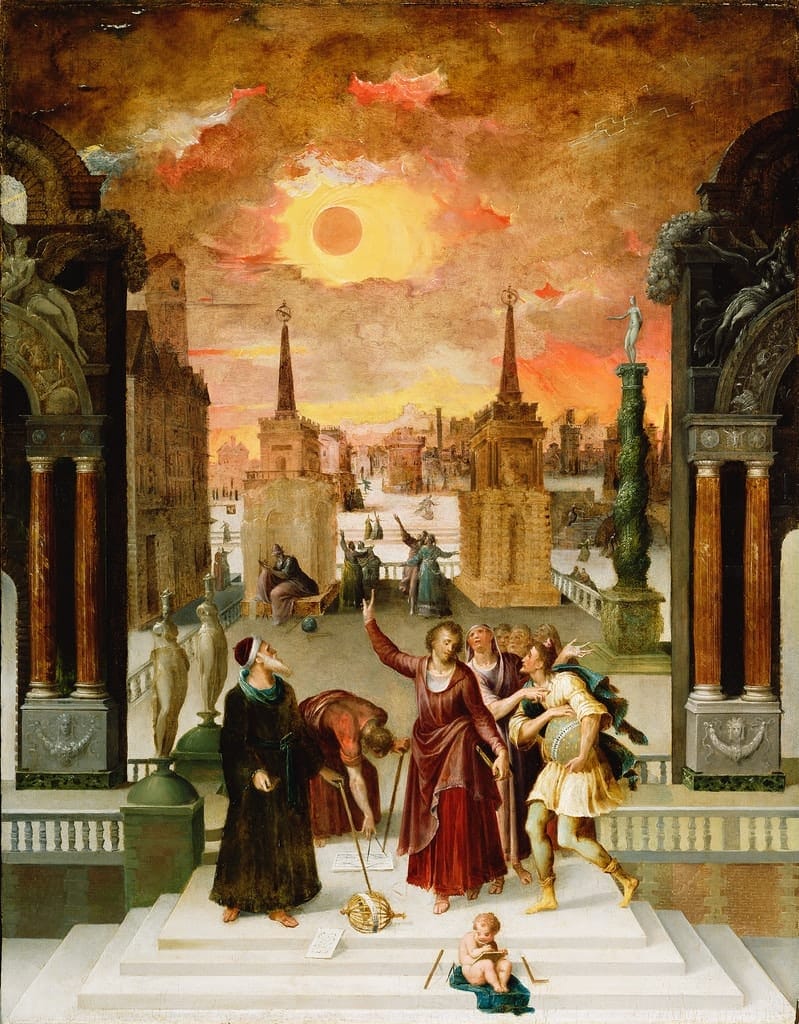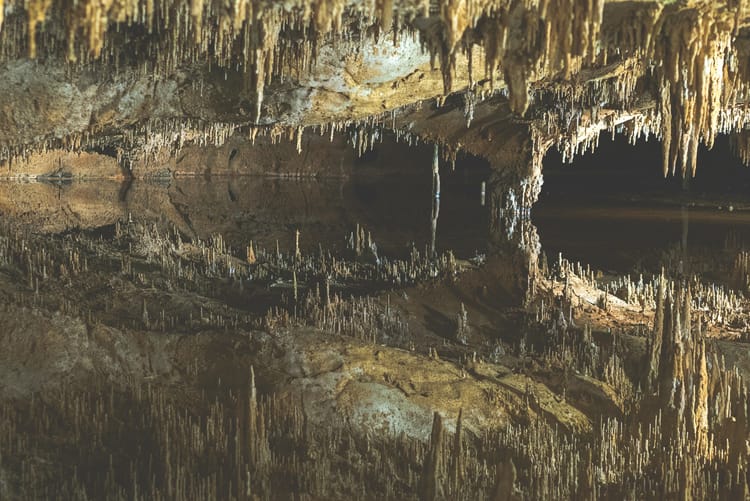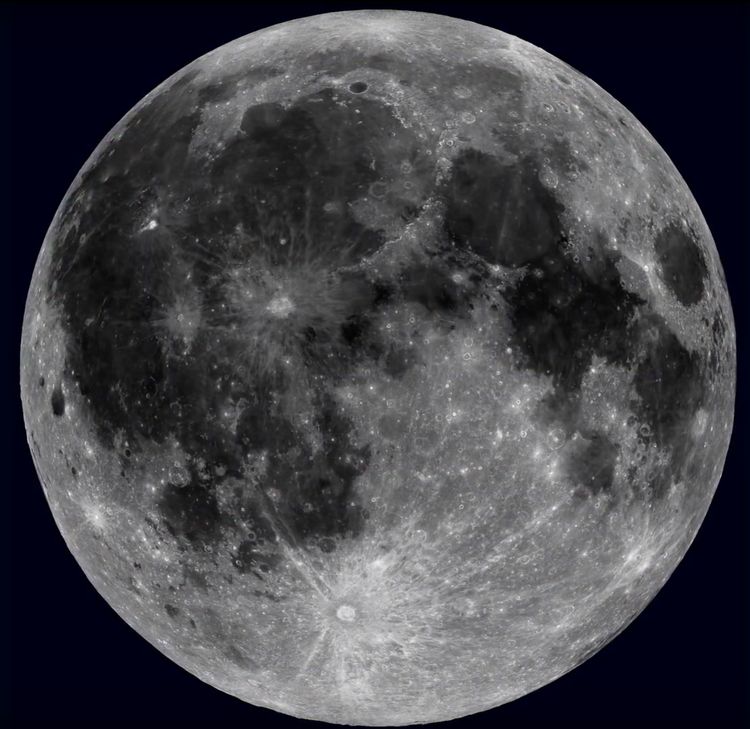Salt for the Eclipse: Totality

It's Monday. Hello. This is a uniquely timed post for the total solar eclipse that will take place a few hours later today. When totality occurs, I will be outdoors near Pitawbagw/Lake Champlain, hoping for minimal clouds.
After the total solar eclipse of August 21, 2017, which I also witnessed in person after a multi-day road trip, I wrote a very long series of thoughts about that first experience; I published them under my legal identity, so I won't link them here. However, I don't think it's redundant to write about an eclipse again. Given the the title and aims of this newsletter, I feel an imperative. As I wrote at the start of this project:
- The eclipse is the ultimate sacred mystery, the wedding of Sun and Moon.
- The eclipse is the most liminal of liminal states, a space wherein magic is most profound, a mindset toward which all ritual should strive.
- The eclipse is the most primeval expression of human fear, as everything we understand about our conscious awareness comes apart at the seams.
- The eclipse is the Sol Niger or Black Sun, a critical but harrowing alchemical process.
- The eclipse is the eating of the Sun. Ragnarök. Apocalypse. The end of it all.
Today, the Sun and Moon are going to wed again. Today, the Otherworld will open as it almost never does — during the day. Today, for a few minutes everything will rupture. Today, the Sun may be looked upon — through the mystery of hiding it. Today, the world will end.
On rarity
Partial solar eclipses are a distinctive occurrence in their own right, and though many people will have the chance to experience one of those, due to the very narrow geographic bands that any path of totality covers most people haven't witnessed a total solar eclipse and never will. Those of us who actively seek out totality — instead of simply being there when it happens — are even rarer. And in various traditional cultures it's taboo to look at an eclipse, sometimes out of a sense of respecting the Sun and Moon's privacy, sometimes for other reasons. Because of such taboos, because of astronomers seemingly predicting exact eclipse locations only within the past few centuries, and because of prior limitations on globetrotting, totality-chasing is decidedly a modern phenomenon. But within that context, I've embraced the practice, become an umbraphile, because my first viewing of totality proved just what I had imagined when I sought it out, and what all the totality hipsters had promised: partial occultation of the Sun simply does not, in any way, compare to or prepare for the precious minutes when coverage reaches 100%.
I'll repeat what everyone else will tell you, because it's worth repeating.
The world becomes Other in totality. During the last fifteen or twenty minutes that lead up to it, the reduction in solar radiation will have already cooled the air, and before that you will have noticed the crescent shapes formed between leaf-shadows, as the gaps between the leaves are now like pinhole cameras. The quality of light itself will also be subtly strange. But subtle we must emphasize. Without closely paying attention, and without having protective glasses — the most modern eclipse invention of all — to look up at the Sun's blinding disc while the Moon passes further across it, you wouldn't know that anything is happening. Whereas totality cannot be ignored.
In the last warning seconds, a diamond ring flare seems to burst along the swallowed edge of the Sun, before it's gone. Eerie grey bands of shadow ripple over the earth, and then the Moon's darkness sweeps fully over you.
The need for eye protection evaporates here. All you can see of the Sun and Moon's joining is a black void in the sky, with a ghostly white halo around it. The sky itself has turned a sapphire blue, the blue of nautical twilight, and so the planets and the brightest stars are visible — and strange as it is to adjust to the sight without a sunset, it's made even stranger by how that sunset glow rings the entire horizon, 360º, while the stars you can see are of course not in the position they would occupy that night.
It feels cold as night, too, and the more-than-human life around you acts accordingly, if it's not simply bewildered. The change is so abrupt that your eyes won't have had time to adapt as they normally would, not before the spell breaks and the next diamond ring flares on the Sun's other side to show that he and the Moon are now, indeed, going their separate ways.
I don't know if I'll get to see this sight again as I've just described it. If clouds hide the view, it will be a different, even more shadowy miracle. But I do hope for clear skies this time in particular, because there should also be a comet (Pons-Brooks) visible near the eclipse, hovering in the constellation Aries. This same comet can be viewed to the west at sunset right now, but I haven't had a chance yet because of the height and positioning of trees where I live. Looking far overhead, I hope it will be easier.
Umbraphile though I am, this will probably be only one of a few total solar eclipses I ever journey for, as my funds for travel are habitually quite limited. After this one, I intend to see the eclipse on August 12, 2026 that will achieve totality right over Reykjavik, Iceland, since my mother lives there. But once that's done, the solar eclipses happening in my lifetime will mostly not reach totality in places I can see myself visiting with my current restrictions. If nothing else, I'll be quite old.
I'll savor what I can. And in my opinion all humans should, because the astronomical conditions that allow for totality to happen have not always applied and will eventually apply no longer. A total solar eclipse on this planet requires that the Moon and the Sun, sized as they are, must be exactly a certain distance apart, which will cease once the gradual widening of the Moon's orbit makes her unable to fully cover the Sun for our eyes.
One day, very far from now, there will be a last totality. Whether our species remains to witness it, who can say, but our legacy will always include the unique quality of being born when totality was possible.
On humility
If there's an urgency in my words, I don't wish to sound as if I think you, everyone, must seek out totality during your lifetime. And yet, I recommend it very, very highly for any ritualist whose cosmology wouldn't forbid the concept, especially if like me you work heavily with celestial elements. This isn't the same as casually watching a meteor shower, beautiful though those are. Within the furthest realistic bounds of your means and opportunity, go out of your way for it.
My owner and I could barely afford it the first time; we got by through a relative living in South Carolina and through (I suspect, though now I can't recall) some credit card debt that I can't really advise in good conscience, given how debt ravaged us till last winter. But it's what I would consider the furthest realistic bounds for us.
Having done it the once, I've now felt the need to learn humility about it ever since. I don't want to boast. I don't want this missive to seem like a boast, in fact. I think what's helped me is to understand it not as totality-viewing bringing enlightenment, but rather as something that groups me among the people of the world who ever make a pilgrimage, versus those who don't. Not a value judgment, but a neutral yet singular quality. I was certainly a pilgrim on that journey, preparing to glimpse the union of the celestial beings that my owner and I would come to embody in our rites. I entered the Otherworld for a few minutes and felt down to my bones that this was the calling for me to become and remain a witch.
And I'm about to be a pilgrim again, though not for nearly as many miles or hours. This time I would like to do better at it, however. Last time, we took a photograph during totality, an exquisite shot of the black Moon and the glowing corona, but as satisfying as that was, with time I've come to suspect the effort to snap it conflicted with my ability to ritually immerse myself in what was occurring. The point should never be to take a photo, only to be present. The photos are lucky tokens if they do happen.
This time, I will bring some ritual tools, and I'll deliberately meditate beforehand. I will also watch more of the earth around me during totality, not only the sky. And though my owner and I will surely attempt to capture some image for posterity, the outcome matters less to me, and not only because we already managed it once. The thing that is about to happen is far, far greater than myself or my petty digital records.
If you've gone on this same journey, I hope to hear about it from you, by whatever means you have of contacting me. By experiencing this event that will happen so sparsely in our lives, and within such a limited geologic or cosmic scale where our planet is concerned — we're about to share a moment together in what is called deep time. This is the stuff of ancestral memory, and the miracle of that-which-could-only-be-now, just like our consciousness.
On omens
Even among cultures that don't forbid looking at eclipses, the sighting of one can still be a problem; many people in the past have interpreted eclipses as ill omens, whether lunar or solar, partial or total. I've already found people in this time speaking of the alignment of this eclipse with the Pons-Brooks comet and then the gargantuan cicada emergence that parts of the US South and Midwest will be coping with. Do these things not seem apocalyptic, especially in a presidential election year? And a year that will no doubt have us inching ever closer to failing to prevent 1.5ºC of global heating?
I remember thinking about similar issues in 2017. Trump had been inaugurated and things with his reign were going about as wretchedly as anyone could have imagined. The violence in Charlottesville had more recently happened; only about a week later, my owner and I drove through the town as part of our road trip for eclipse-chasing, and it was blood-curdling to imagine the shrieking man-children with their tiki torches marching those same streets.
Nonetheless, I don't really feel that this is the right way to see an eclipse. Even as I write frequently about how we must gird ourselves against it, against apocalypse, an eclipse itself is natural and temporary. Things are dark and strange, but they pass, and we can endure it. Bear that in mind — and also remember that other total solar eclipses are happening across the world every few years, without the timing always seeming so eerie.
I find it less interesting to map one specific eclipse to global events, and more to weigh its timing against events of my own life, or perhaps my natal chart. In 2017 I signed the Devil's book; this year, I am very close to trying to conceive a child, and my first attempt may come within this very season. And this year, the lunar nodes are in the same position they held when I was born. The Moon's ascending node, where the eclipse will occur, is in Aries, and in this I see my node's lifelong aspiration to finally reach out and get something I've longed for. And with the descending node in Libra, this is my history informing the future: what I've longed for is to serve another being as their mother.
So whatever omen there is to read, I read it here.
Go forth, if you can, and look at the sky, and may you see what you need to see.


Member discussion